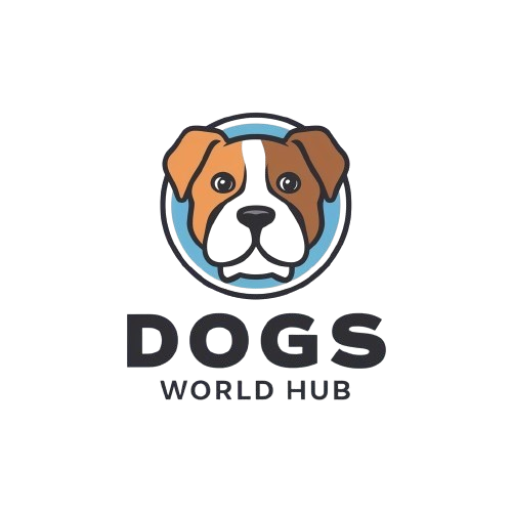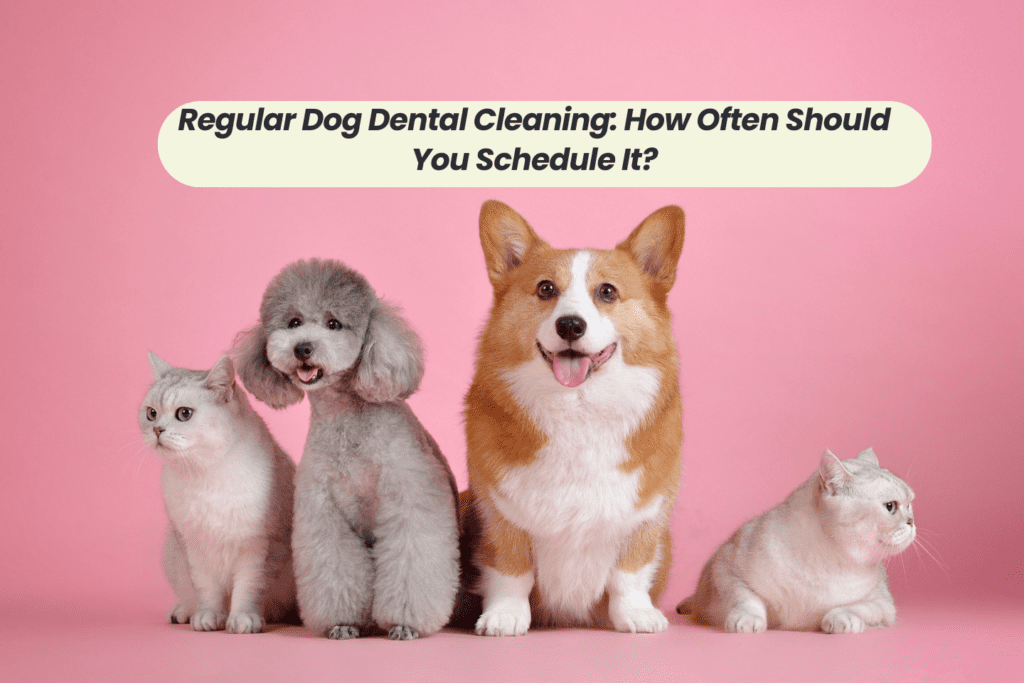As a responsible dog owner, you understand the importance of taking care of your furry friend’s overall health. However, many pet owners overlook the significance of dental care for their dogs. Just like humans, dogs can suffer from various dental problems if their oral hygiene is neglected. Regular dental cleaning plays a vital role in maintaining your dog’s oral health and preventing potential complications. In this article, we will delve into the importance of dog dental care, the benefits of regular dental cleaning, and how often you should schedule these cleanings to ensure your canine companion’s well-being.
- The Importance of Dog Dental Care
- Common Dental Problems in Dogs
- Benefits of Regular Dental Cleaning for Dogs
- How Often Should You Schedule a Dog Dental Cleaning?
- Signs That Your Dog Needs a Dental Cleaning
- Professional Dog Dental Cleaning vs. At-Home Care
- Tips for Maintaining Your Dog’s Dental Health Between Cleanings
- Finding a Reliable Veterinarian for Dog Dental Cleanings
- Cost Considerations for Dog Dental Cleanings
- Conclusion: Prioritizing Your Dog’s Oral Health
The Importance of Dog Dental Care
Dental care is an essential aspect of your dog’s overall health. Poor oral hygiene can lead to a range of dental problems, including plaque buildup, gum disease, tooth decay, and bad breath. Moreover, dental issues can also impact your dog’s overall well-being, affecting their ability to eat, play, and even socialize. By prioritizing your dog’s dental care, you can prevent these problems and ensure their comfort and happiness.
Common Dental Problems in Dogs
Understanding the common dental problems that dogs can face will help you appreciate the importance of regular dental cleaning. One of the most prevalent issues is dental plaque, which forms a sticky film of bacteria on the teeth. If not removed, plaque can harden into tartar, leading to gum irritation and inflammation. This condition, known as gingivitis, can progress to periodontal disease, causing tooth loss and infections.
Another common dental problem in dogs is tooth decay. While dogs are less prone to cavities than humans, they can still develop decay due to poor oral hygiene or a diet high in sugary treats. Additionally, dogs may suffer from fractured or broken teeth, which can be painful and require dental intervention. Regular dental cleaning can help identify and address these issues before they worsen.
Benefits of Regular Dental Cleaning for Dogs
Regular dental cleaning for dogs offers numerous benefits beyond maintaining oral health. Firstly, it helps prevent the buildup of plaque and tartar, reducing the risk of gum disease and tooth decay. By keeping your dog’s teeth clean, you can also prevent bad breath, which can be a significant concern for both you and your furry friend.
Furthermore, regular dental cleanings can help detect any underlying dental problems early on. This early detection allows for prompt treatment, preventing the progression of dental issues and potentially saving your dog from pain and discomfort. Additionally, maintaining good oral hygiene can have positive effects on your dog’s overall health, as dental problems have been linked to other systemic conditions, such as heart and kidney diseases.
Read Also : The vital signs of a healthy dog
How Often Should You Schedule a Dog Dental Cleaning?
Now that you understand the importance and benefits of regular dental cleaning for dogs, you may be wondering how often you should schedule these cleanings. The frequency of dental cleanings depends on various factors, including your dog’s age, breed, and overall dental health. As a general guideline, most dogs will benefit from a professional dental cleaning once every six to twelve months.
However, it is essential to note that some dogs may require more frequent cleanings. This includes dogs with a history of dental problems, breeds prone to dental issues, or older dogs who may have more extensive plaque and tartar buildup. Consulting with your veterinarian will help determine the appropriate frequency of dental cleanings for your specific dog.
Signs That Your Dog Needs a Dental Cleaning
While a regular dental cleaning schedule is essential, it is also crucial to be aware of the signs that your dog may need a dental cleaning before their scheduled appointment. Pay attention to any changes in your dog’s behavior or oral health. Persistent bad breath, excessive drooling, swollen or bleeding gums, and difficulty chewing or eating may indicate the need for a dental cleaning. If you notice any of these signs, it is recommended to consult your veterinarian for an evaluation and appropriate dental care.
Professional Dog Dental Cleaning vs. At-Home Care
While at-home dental care for dogs, such as regular brushing, is beneficial, it is not a substitute for professional dental cleanings. Professional cleanings performed by a veterinarian involve a thorough examination, scaling, and polishing of your dog’s teeth, ensuring a deep clean that cannot be achieved with brushing alone. Additionally, professional cleanings allow for the detection and treatment of any dental issues that may require intervention.
However, at-home dental care is still essential for maintaining your dog’s oral health between professional cleanings. Regular brushing with canine-specific toothpaste, providing dental chews or toys, and feeding a balanced diet can help prevent plaque buildup and maintain good oral hygiene. Your veterinarian can guide you on the best practices for at-home dental care based on your dog’s specific needs.
Tips for Maintaining Your Dog’s Dental Health Between Cleanings
To complement professional dental cleanings and ensure your dog’s dental health between appointments, here are some essential tips:
- Regular Brushing: Brush your dog’s teeth at least two to three times a week using a toothbrush and toothpaste specifically designed for dogs.
- Dental Chews and Toys: Provide your dog with dental chews or toys that help reduce plaque and tartar buildup while keeping them entertained.
- Balanced Diet: Feed your dog a balanced diet that promotes good oral health. Avoid sugary treats and consider incorporating dental-specific food options.
- Regular Check-ups: Schedule regular veterinary check-ups to monitor your dog’s dental health and address any concerns promptly.
By following these tips, you can contribute to your dog’s oral health and reduce the frequency of professional dental cleanings.
Finding a Reliable Veterinarian for Dog Dental Cleanings
When it comes to your dog’s dental care, finding a reliable veterinarian is crucial. Look for a veterinarian who specializes in dental care or has experience in performing dental cleanings. Ask for recommendations from fellow dog owners or consult online reviews to ensure you choose a reputable professional.
During your dog’s dental cleaning appointment, observe the veterinarian’s approach, the cleanliness of the facility, and the level of care provided. Building a trusting relationship with your veterinarian will enhance your dog’s dental care experience and ensure their well-being.
Cost Considerations for Dog Dental Cleanings
The cost of dog dental cleanings can vary depending on various factors, including the geographic location, the veterinarian’s expertise, and the extent of dental issues. On average, professional dental cleanings can range from $300 to $800 or more. It is essential to consider this cost as an investment in your dog’s long-term health and well-being.
Additionally, some pet insurance plans may cover a portion of the cost of dental cleanings. Researching and comparing different insurance options can help alleviate the financial burden associated with your dog’s dental care. Remember, prevention is vital, and regular dental cleanings can help minimize the need for more expensive dental procedures in the future.
Conclusion: Prioritizing Your Dog’s Oral Health
Regular dog dental cleaning is an essential component of your furry friend’s overall health and well-being. By understanding the importance of dental care, recognizing common dental problems, and scheduling regular cleanings, you can ensure your dog maintains optimal oral health. Additionally, practicing good at-home dental care, finding a reliable veterinarian, and considering cost considerations will further contribute to your dog’s dental care journey. Prioritize your dog’s oral health, and they will reward you with a lifetime of smiles and tail wags.

